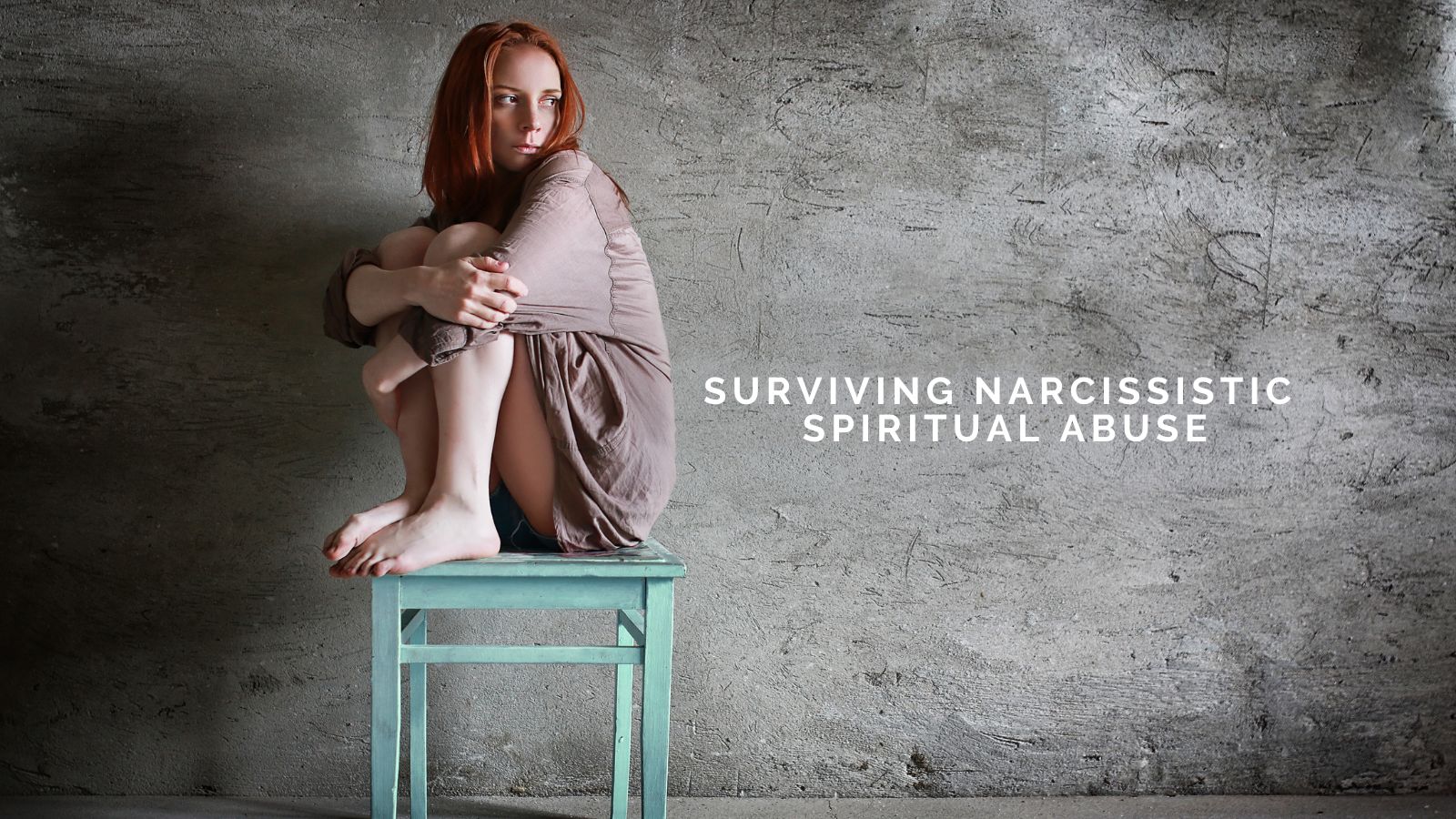
How to Heal, Reclaim Faith, and Rebuild Your Soul
Spiritual abuse is one of the most damaging forms of control because it attacks the deepest part of you: your faith, your relationship with what is sacred, and your sense of who you were created to be at the very core of your being. When combined with narcissism, it becomes a crafty and cunning form of domination that can fracture your identity, twist your beliefs, and leave you questioning everything and everyone you once trusted.
This is not about healthy correction or differences in belief. It is about someone—a partner, religious leader, mentor, or parent—who uses spiritual language, rituals, authority, or religious titles to manipulate, demean, and exploit you. It is not done for your benefit or betterment at all. A spiritual narcissist abuses their victims through control and manipulation solely to feed their own need for power and self-admiration.
How Narcissistic Spiritual Abuse Works
At its heart, narcissistic spiritual abuse is about power disguised as love and piety. The narcissist presents themselves as the only trustworthy guide to truth or enlightenment. Earning their approval becomes the measure of your faith, and losing it feels like spiritual condemnation.
They position themselves above you and above others.
Questioning them or their religious ideologies is seen as challenging the very foundations of faith. In time, your spiritual well-being is measured not by your own convictions or growth, but by how closely you align with their demands.
These false, self-appointed leaders manipulate and hijack your soul of all that is sacred until your faith is no longer a source of strength, but a weapon they wield against you.
Common Tactics of Spiritual Abusers
The methods of narcissistic spiritual abuse vary, but they often follow predictable patterns:
-
Twisting Beliefs to Control You
Core teachings of why God created all people for relationship are misrepresented in ways that support their dominance. The focus shifts from principles of unconditional love, righteous justice, and compassion to their rules, blind obedience, and threats of punishment. -
Masking Harm as Spiritual Guidance
Criticism, neglect, or outright cruelty are reframed as discipline or deemed necessary for your spiritual growth. -
Public Image vs Private Reality
In public, they appear kind, caring, wise, and deeply devoted. In private, they are critical, manipulative, cruel, and often volatile. The contrast makes you doubt your own beliefs and perceptions. -
Isolating You from Real Voices
They discourage or forbid you from seeking counsel, attending other gatherings, or learning from different teachers. Isolation ensures their voice is the only one you hear. -
Claiming Exclusive Insight
They insist they have special spiritual authority, knowledge, or a unique connection to the truth. This makes it dangerous for you to disagree with them. -
Using Guilt, Shame, or Fear Tactics
They keep you obedient by making you feel responsible for their moods, their success, or even outcomes beyond your control. They frame leaving or disobeying as betrayal—not just of them, but of your own soul.
The Lasting Impact
The damage of spiritual abuse is complex and long-lasting. It often combines emotional trauma with a deep sense of spiritual disorientation. Survivors may experience:
-
Distrust in yourself. You may doubt your ability to make decisions or discern right from wrong without someone else’s approval.
-
Confusion about core beliefs. You may not know what you truly believe anymore, because their voice has been speaking lies over your truth for too long.
-
Fear of church, ministers, or spiritual places. Even healthy communities and true leaders with real godly integrity may feel unsafe because sacred spaces were used against you.
-
Chronic fear of rejection. You may carry a persistent sense of not being enough, always on the edge of failure, haunted by deep wounds of rejection.
-
Isolation. You may cut yourself off from others, and from the comfort and connection your faith once gave you.
Over time, you may find yourself associating spiritual practices with anxiety, dread, or feelings of failure and worthlessness.
Why It Hurts So Deeply
Faith touches the most vulnerable and intimate part of our soul—our mind, will, emotions, and consciousness. When that is exploited and victimised, it is not just an attack on your emotions but on your identity, values, and hope for a positive future.
This is one of the hardest betrayals to overcome because you were harmed by someone you trusted—a fraud who wore a mask of holiness. Your spiritual life should have been a source of refuge, safety, and restoration. Instead, it became a place of confusion and a bloody battlefield.
It leaves spiritual wounds, a profound sense of emptiness, and feelings of not belonging—all poisoned by a vicious manipulative wolf in sheep’s clothing.
Breaking the Cycle
Leaving narcissistic abuse is not just a physical or emotional process—it is cutting off spiritual connections and soul ties. It’s about reclaiming your right to define your own beliefs and reconnect with your Creator on your own terms.
-
Name the Abuse
Acknowledge what happened. It was not a misunderstanding. It was a misuse of spiritual authority for control. -
Separate Faith from the Abuser
Their behaviour is not the measure of what is true or divine. You are entitled to your own beliefs. -
Rebuild Your Inner Compass
Practise listening to your own sense of right and wrong, even in small decisions. This is how you reclaim your ability to trust yourself. -
Seek Safe Community
Surround yourself with people who respect your boundaries, listen without judgement, and do not demand conformity. -
Give Yourself Time
Healing may include stepping back from structures or practices that feel triggering. This is not abandonment—it is creating space to heal and reconnect in a healthy way.
Reclaiming Your Spiritual Voice
Part of the damage of narcissistic spiritual abuse is that it teaches you to distrust your own spiritual instincts. Reclaiming your voice and the imprint you are called to make is essential.
Allow yourself to feel your emotions. Find safe places where you can ask questions without fear of punishment. Give yourself permission to seek meaning and connection outside the framework you were misled to accept.
Over time, your beliefs may shift, deepen, or expand. You may find new ways to connect with God that are rooted in His love, not fear. This is how you take back the power that was stolen from you.
To the One Still in It
If you are still living under the shadow of narcissistic spiritual abuse: educate yourself. Recognise the control and fear you are under are built on lies. You are not insignificant or failing—the standards imposed on you were designed to keep you small.
Your value is not determined by anyone’s approval. Your spiritual health is not defined by obedience to them. You have rights—especially the right to walk away from harm, even when it comes wrapped in religious language.
Time to Move Forward
Recovering from narcissistic spiritual abuse is a journey, but it is one that leads to freedom. As you untangle your identity from deception, you begin to rediscover the parts of you buried under manipulation and control.
As you heal, fear fades. The sound of their voice in your head weakens. Soon, you will hear something far more powerful: the still small voice of truth, compassion, and hope.
On that day, you will understand the difference between control and care, fear and love. Your faith, your voice, and your freedom will be restored.
You are an overcomer. It is time to share your story. You are the light of the world.
_(38).jpg)







